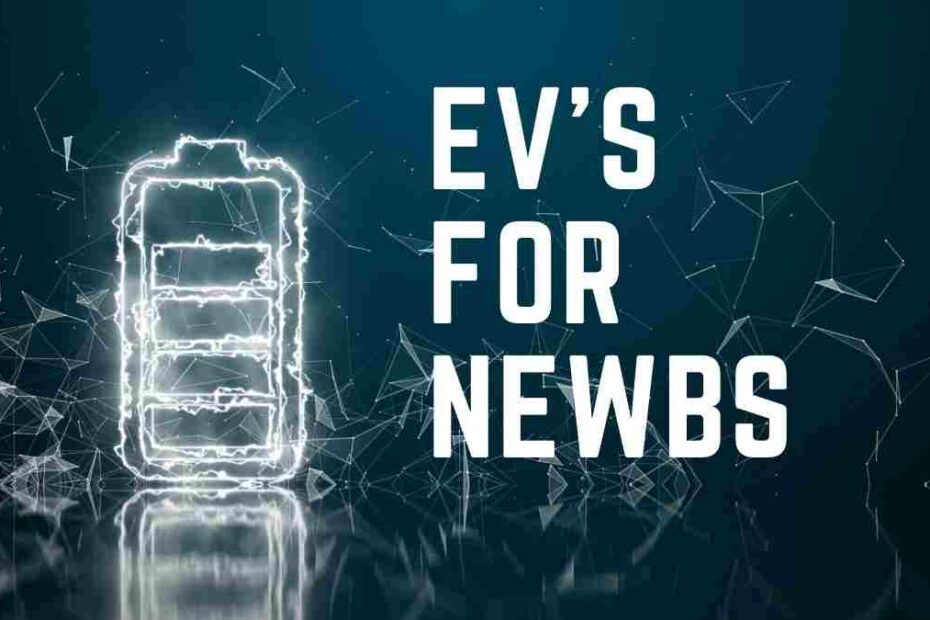There is a lot of information on the internet, obviously, and even on this website as well. So in the interest of keeping it simple, here is a quick newbie guide of some of the often asked questions regarding electric cars. I will link to some articles along the way that expands on the topics, but if you want an overview, than this is the post for you.
As electric vehicles hit the mainstream, more and more manufacturers are getting in on the action. Offering more styles and options to appeal to more buyers. The majority, I think, are resistant to change, and going from gas to electric is, well, a pretty big change.
So what are the common questions on consumers minds?
How Long Do Electric Vehicle Batteries Last?
Electric cars batteries are designed to last the life of the car. That doesn’t mean for life, but a period of time where most people would be looking into a new car.
Battery life and cost are certainly a major concern of most interested in EV’s. Manufacturers are doing what they can to alleviate these concerns by offering long warranties on their batteries.
Toyota for example offers a 10 year, 150,000 mile warranty. Tesla offers a minimum 8 years and 100,000 miles on the Model 3 and even longer on their higher end models. Nissan offers the same 8 year, 100,000 mile warranty on their popular EV.
Most of these batteries will last even into the 200,000 mile range, though the capacity will be diminish over the years.
Are EV Batteries Expensive To Replace?
Yes, they are pretty expensive to replace. Luckily you don’t need to worry about it any more than you would worry about needing to replace your engine. Which is an expensive proposition as well.
That Nissan Leaf battery pack is around $5000.00. A Tesla Model 3 can be up to $13000.00. Yikes! at least you have the hope that by the time you do need a replacement, the price may have come down by then. The batteries are one of the most costly parts of the entire car, and manufacturers are spending a great deal of time getting those prices down. It is ultimately in their best interest.

How Long Does It Take to Charge an Electric Vehicle?
Charging your EV can take as little as a few minutes for a top up, to a solid 45 minutes to charge one up from empty. This is one of the primary concerns of switching from a gas car to an EV. We really take for granted the 5 minute gas fill up. Tesla’s high speed superchargers make short work of charging, but you are still going to spend 15 or 20 minutes waiting to get enough juice to get you to the next station.
What Is The Range of an Electric Vehicle?
These days electric vehicles an average range of over 250 miles. Some models like the Tesla Model S have a ranges over 400 miles. A Fiat 500e is only going to get you around 85 miles till it’s time to recharge.
If range is a concern for you, you can consider plug-in hybrid-electric vehicles. They have a much shorter range than a full EV but you get the gasoline back up to get you where you’re going. Take the Toyota RAV4 Prime as an example. It has an EV range of 42 miles, but a total range of over 600 miles.
How Much Will My Electric Bill Go Up If I Buy an EV?
I wrote a more in depth article about cost here. To keep this flowing though, most owners find that their monthly electric bill increases by about $30 to about $80 depending of course on which car they’ve chosee, how much they drive, and how much their electricity rate is. The extra cost in electricity is easily offset form the savings in gasoline.. The EPA provides an estimated average annual energy cost for every EV available at www.fueleconomy.gov
What is a BEV Battery Electric Vehicle?
A BEV is a vehicle that is powered exclusively by a battery. The Mustang Mach E and all Tesla Models are examples of BEV’s though the term is not very common.
What is a PHEV Plug-in Hybrid-Electric Vehicle?
A PHEV however is a very common term. A PHEV of Plug-in Hybrid Vehicle can be plugged in and charged, drive on pure electricity along, and they a gasoline engine will take over when the battery is depleted. The Prius Prime and RAV4 Prime are popular examples PHEVs.
Are Electric Vehicles Expensive?
Are EV’s expensive? They certainly can be. A Tesla Model S, or the new Lucid EV’s are over $120,000. Not exactly chump change.
The Chevy Bolt on the other hand is available in the low $30,000s thanks to many discounts available through local dealerships. Certain states have even better rebates which means you could have an electric car in your driveways for as low as $20,000!
Which leads us to the next question, are they affordable? Because the price isn’t the only aspect, affordable is a different thing all together.
Are Electric Vehicles Affordable?
First off, check out this post here on how I justified the cost of my Model Y. Again, though, cars such as the Chevy Bolt, Nissan Leaf, Hyundai Kona Electric, Kia Niro, Electric, and Hyundai Ioniq are all in the lower cost range for EV’s and if you drive enough, the gas savings will most certainly offset the extra cost up front. I can’t make the same argument for the Porsche Taycan, but EV does not immediately mean Unaffordable.
What Is The Best Electric Vehicle?
So may people ask this question, and it’s like asking what’s the best wine, or who’s the best artist.
You’re here though, so I will answer the question for you from my perspective. The best EV is the Model Y, it’s price fits my budget, it’s has all the advantages of an EV I am looking for, range, speed, reliability, technology. It’s big enough to haul my family stuff, pack for a camping trip or a trip to Home Depot. Driving from Toronto to Halifax is almost as good as taking a train when the car does most of the work.
Unless you’re talking performance. Then the Taycan, it’s the best mass produced EV out there.
Should I Buy A Used Electric Vehicle?
Buying a used EV comes with the same caveats as buying any used car. Check it’s condition, and be sure it’s a good value. Where I live for example, a used Model 3 winds up being the same price as a new one when you take the rebate into account.
Some hold their value extremely well, whereas you can pick up a cheap Prius all day long.
Do your due diligence and buy a well sorted example and you will do fine.
Do I Get A Rebate When I Buy an EV?
Most states offer rebates to buyers for qualifying electric vehicles. Most manufacture sites will list the rebates available in each state. You can also check with your local DMV office.
Some cars have a bigger rebate than others. Cost is usually a factor as well.
Do I need To Install A Home EV Charger?
Installing a 240 V wall charger will be the first on many peoples lists after ( or even before ) getting their car. While all cars can be charged with a standard 120V receptacle, the charging is slow, in fact in some situations you will find yourself out of power when you need it. A 240V charger usually runs about $500 or so, and will charge your car up to 4 times faster than a standard socket.
Do you need to install a charger? No, should you? YES!

Can I charge an EV in the Rain or Snow?
Yes, The connections are water proof, so have no fear. You can safely charge an EV in the rain or even in the middle of snow storm. Cars were designed for this.
Do EVs Work In Winter?
I live where it seems winter is around for half the year, so luckily, Yes, EVs work just fine in winter. You can see my post here about that.
Batteries however are impacted by cold weather, so you can expect that your range will be reduced by 10% to 30%.
Preheating your EV though is usually the tap of a button, which makes getting into a warm car on a cold day a pleasant experience. Also, because there are no engines of which to get heat from, most EV’s use an electric heater. The benefit to that is instant heat. Yep, get in, and it’s blowing warm within seconds. The downside though is that is one more drain on the battery.
Feel free to hit the home button on top which will take you back to the main page. From there you will find a variety of articles on EV’s if you would like to learn more.
Happy Driving!
